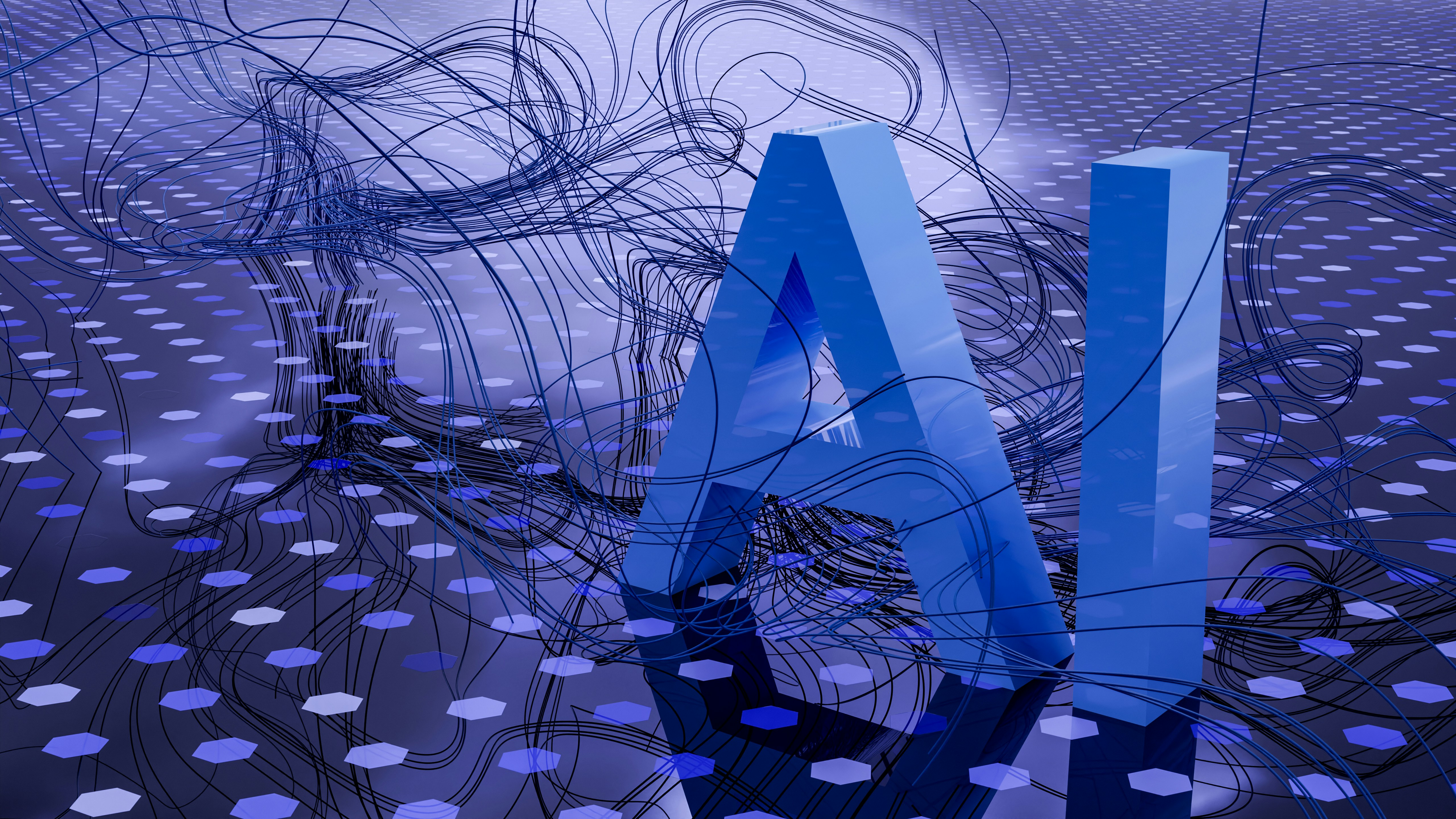
Transforming Small Business Profit 10x with AI-Powered Automated Conversations
“"Human intelligence is a reflection of the intelligence that produces everything. In knowing, we are simply extending the intelligence that comes to and constitutes us. ” - Huston Smith
The World Runs On Automation
Not long ago, hard work and showing up early were enough to build a good life. You didn’t need to know about computers or how systems ran in the background. If you knew your trade, treated people right, and worked hard, you could stay ahead.
But the world has changed quite fast.
Today, automation, workflows, and artificial intelligence are running everything from factories to small businesses to your neighborhood grocery store. It’s no longer about who works the hardest. It’s about who works the smartest.
If you’re not using automation now, you’re falling behind. And the longer you wait, the harder it gets to catch up.
How Automation Became A Necessity
In the old days, a shopkeeper would spend hours restocking shelves, checking inventory by hand, and managing orders with a pen and notebook. Today, inventory systems automatically track stock levels, alert managers when supplies run low, and even place reorders without a human lifting a finger.
This isn't just happening in big companies either.
According to McKinsey Global Institute, nearly 50% of work activities worldwide could be automated using currently available technology.¹
That means automation isn't coming someday, but instead it's already here. It’s checking your online orders, answering your customer support questions, running your banking apps, and even scheduling your next oil change.
The businesses that survive the next 5 to 10 years won't be the ones working the hardest.
They’ll be the ones who figured out how to work smarter, faster, and cheaper — by letting automation do the heavy lifting.
Workflows Are Quietly Running The World
Workflows are the systems that tie all your tools and processes together so everything runs smoothly. They tell your email software to send a welcome message after someone fills out a form. They remind your customers when it’s time for an appointment. They keep your paperwork from piling up into a mess.
Without workflows, businesses drown in their own mess. They lose customers, miss deadlines, and make mistakes that could’ve been avoided.
Gartner Research found that businesses using automated workflows see a 30% improvement in efficiency within the first year.²
This isn’t just for tech companies either. Restaurants use workflows to automatically send text alerts when tables are ready. Electricians use them to remind customers about upcoming appointments and delivery services use them to update customers on package locations in real-time.
If you’re still handling all your communication by hand, you’re not only working harder than you need to. If you’re losing ground to businesses that figured out how to automate the boring stuff.
Artificial Intelligence Isn’t The Future, It’s The Now
Most folks hear "artificial intelligence" and think of robots or fancy computers.
But AI is already baked into the stuff you use every day without even realizing it.
When you get a text from your bank warning about suspicious activity, that’s AI.
When your smartphone suggests faster routes to avoid traffic, that’s AI.
When you shop online and it recommends products you might like, that’s AI.
According to a Harvard Business Review report, more than 60% of companies are already using AI to improve customer experience and streamline internal operations.³
It’s not just big companies either.
Small businesses are using AI to answer FAQs through chatbots, sort leads based on buying signals, or help owners decide the best times to run promotions.
AI is no longer about being fancy.
It’s about survival.
How Automation, Workflows, and AI Are Changing Industries (Real-World Examples)
Let’s take a look at how real businesses outside of tech are already making moves with automation and AI:
Manufacturing
Factories use smart machines that spot defects faster than human inspectors. These machines cut waste and improve product quality while helping companies stay competitive while keeping costs down.
Healthcare
Hospitals and clinics now use AI to scan X-rays, monitor patient vitals, and even predict possible future health issues. This doesn’t replace doctors at all, it helps them catch problems faster and treat patients better.
Transportation
Delivery companies like UPS and FedEx use AI-driven routing systems to plan the fastest and cheapest delivery routes. Every mile saved means more money kept in their pockets.
Retail
Big and small retailers alike use automated inventory management, AI-based customer service, and personalized marketing. A store that follows up with a customer after a purchase or sends a discount right when someone is ready to buy isn’t guessing, it’s using workflows and AI.
The companies who learn to trust automation are the ones staying lean, moving faster, and earning more without burning out their people.
What Happens If You Don’t Adapt?
Some people still think automation and AI are only for big corporations.
They believe they can just "keep doing things the old way."
But here’s the truth, the old way is being phased out. Without exaggeration work is speeding up and expectations are getting higher.
Those who don’t adapt aren’t just going to work harder, but they’re going to earn significantly less.
Imagine trying to hand-deliver every bill, call every customer yourself, and track every lead by sticky notes while your competitor uses automated systems that do it instantly.
You simply can't out-hustle technology anymore, you must out-smart it.
Why Automation Is Built For Hardworking People
Some folks worry automation will replace jobs or take away their role. But that’s the wrong way to look at it.
Automation isn’t about replacing people, it’s about replacing repetitive work so people can focus on what matters.
When workflows take care of the busywork:
You have more time to close deals.
You have more energy to build real relationships.
You stay ahead without burning out.
The smartest workers, entrepreneurs, and business owners today aren’t fighting against automation — they’re using it to multiply their efforts.
And because so many small businesses and regular people still aren't adopting it, there’s a huge advantage for the ones who move first.
Getting Started Is Easier Than You Think
You don’t have to automate everything overnight, and you don't need to spend a fortune.
Here’s what smart businesses and workers are doing:
Start small: Automate one thing one thing at a time, maybe customer appointment reminders or simple emails.
Use simple tools: Many platforms offer easy drag-and-drop workflows that don’t require coding.
Stay consistent: Build slowly but don’t stop and add new automations as you grow.
Keep learning: Automation and AI tools are improving every month and therefore staying current will keep you ahead.
The biggest mistake you can make is doing nothing.The second biggest mistake is thinking automation is "too complicated" or "only for tech experts." The tools have gotten so simple that anybody willing to learn a little can take full advantage.
Final Thoughts: The World Runs On Automation
Hard work still matters, showing up still matters, and character still matters. But if you’re not combining those things with smart automation and systems, you’re running uphill while others are cruising past you.
The world runs on automation now, and workflows and AI are the engines behind everything that’s moving fast, staying lean, and growing strong.
The future isn’t waiting for anyone.
The good news? It’s still wide open for anyone willing to grab the tools and get moving. You don't have to be perfect, you just have to start.
Sources:
McKinsey Global Institute, The Future of Work After COVID-19
Harvard Business Review, How Workflows Will Shape the Next Decade
MIT Technology Review, Artificial Intelligence: Real Uses, Real Risks
Gartner Research, Top Automation Trends for Businesses in 2025
Forbes, Why Small Businesses Must Adopt AI and Automation Now

